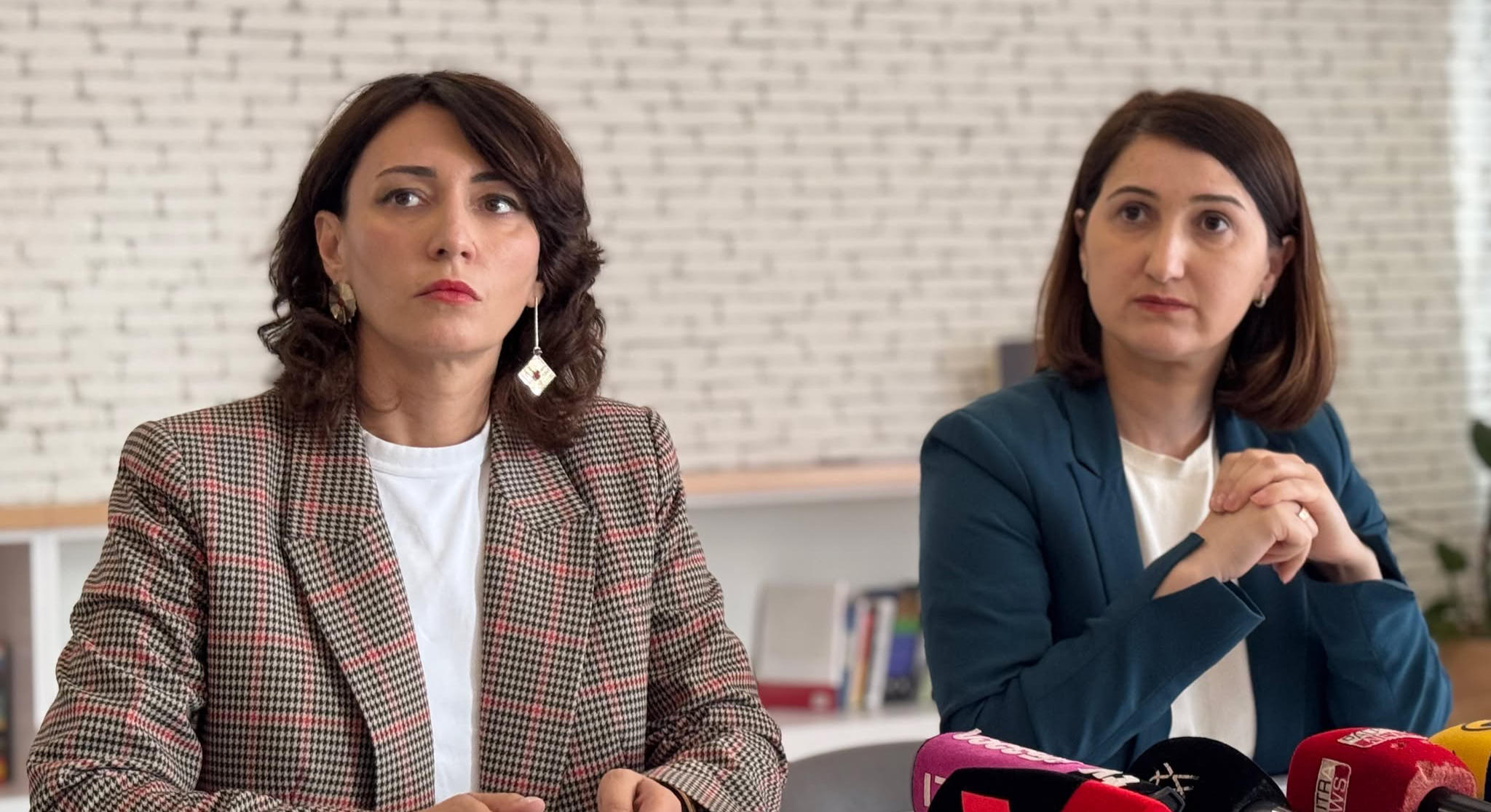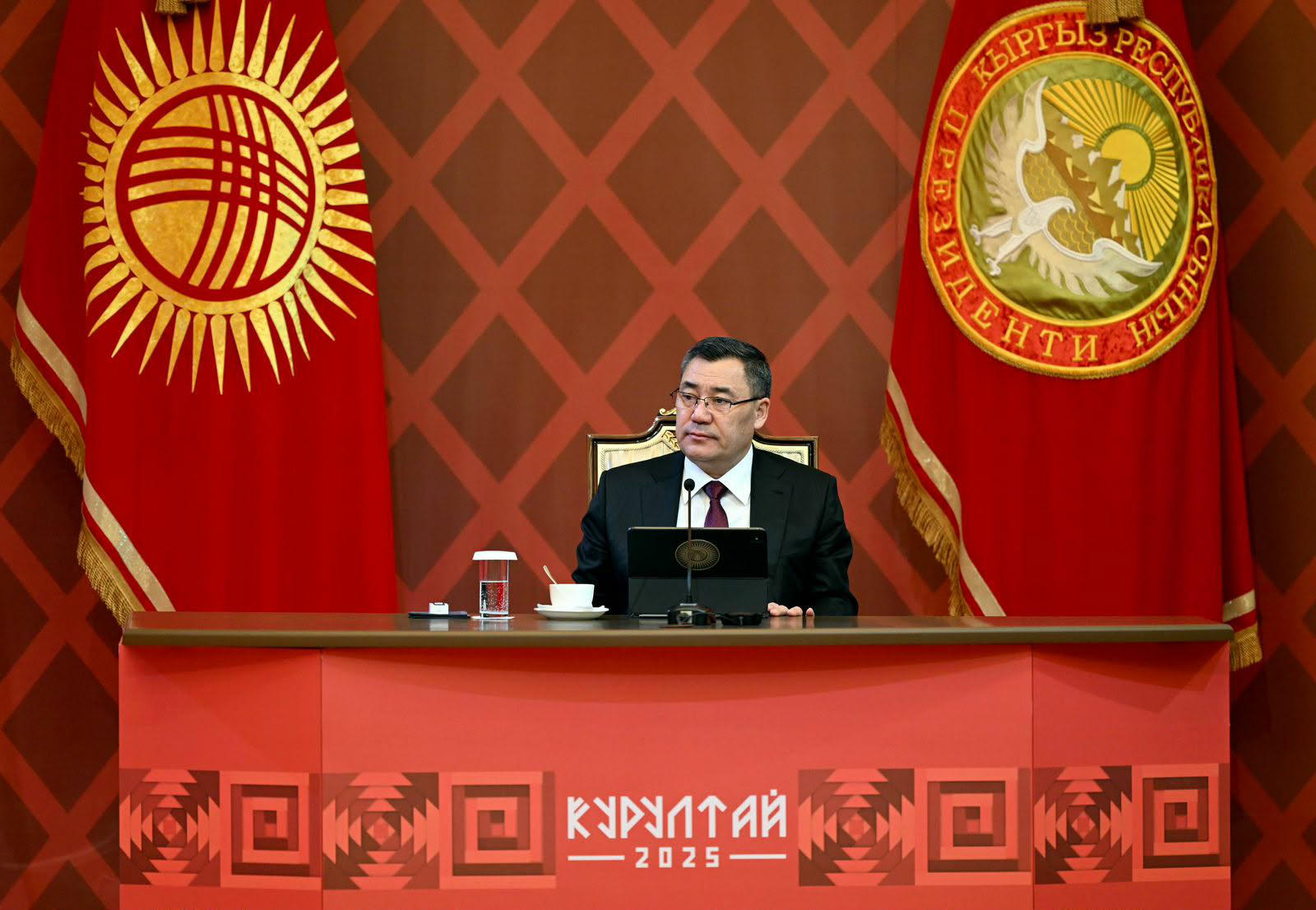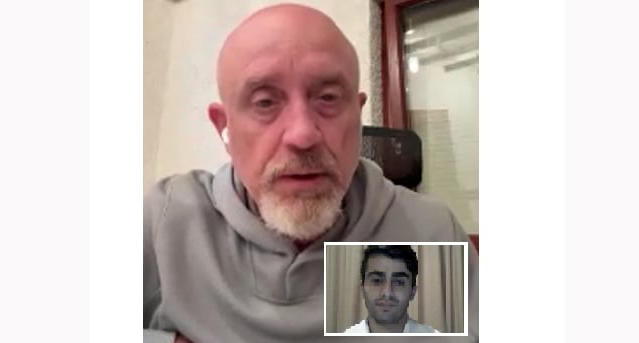NGOs: Evidence in the case of 8 people detained for blocking the highway suggests that reports were likely falsified – Detention deadlines, procedures violated, and personal searches were illegal

According to statements made by non-governmental organizations, evidence in the case of eight people detained on February 2nd near the "Tbilisi Mall" for blocking the highway suggests that the administrative detention reports were likely falsified. This was announced during a joint press conference by representatives of the third sector, Londa Toloraia and Eka Gigauri.
They stated that detention deadlines and procedures were violated, and the personal searches conducted on the accused were illegal.
"First and foremost, it should be noted that on January 31, 2025, the government, under emergency procedures, amended its resolution in a single day, through which ‘Georgian Dream’ declared the blocking of the road section in front of Tbilisi Mall a criminal offense under Article 222 of the Georgian Criminal Code. The aim of this amendment was to initiate criminal prosecution against protest participants and thereby restrict freedom of expression and diminish the protest momentum.
Beyond the fact that the state amended criminal legislation bypassing Parliament—something absurd and entirely undemocratic—the case contains the following significant legal violations: breaches of detention time limits and procedures; illegal personal searches of the accused; and the evidence in the case was obtained unlawfully.
Detention Time Limits and Procedures Were Violated
According to Georgian law, a person may not be detained for more than 72 hours. In this case, all eight defendants were held beyond this limit—initially under administrative detention, then under criminal charges.
Specifically, all eight individuals were administratively detained on February 2, 2025, between 18:05 and 19:00. Seven were detained for petty hooliganism and disobedience to law enforcement, while one was detained solely for disobedience.
Evidence in the case indicates the administrative detention reports were likely falsified. In a video included in the case materials, one individual is seen being arrested by officers wearing uniforms of the Special Tasks Department, while the administrative report and a police officer's testimony state he was detained by a patrol police officer.
These eight individuals were administratively detained for more than 24 hours, which, under the law, must be justified in writing. No document in the case file provides such justification for the extension of administrative detention.
On February 4, 2025, the Ministry of Internal Affairs formally released all eight individuals from administrative detention and immediately re-detained them under criminal charges—some at the administrative building of the Tbilisi Police Department, others in the yard of the temporary detention facility—without ever being released from state custody. They were re-detained on charges of attempting to block a site of strategic importance.
All eight were re-detained on February 4 without a court order, which is illegal, as there was no urgent basis for their arrest. Since February 2, these individuals had already been held in temporary detention. Moreover, nearly all investigative actions related to the criminal case were conducted on February 3, i.e., one day prior to the re-arrest. This gave the authorities sufficient time to obtain a court order for the arrests.
The court issued rulings on pretrial detention after 21:00 on February 5, 2025—more than 72 hours after the arrests.
Illegal Personal Searches of the Defendants
All eight defendants were subjected to personal searches during their criminal arrests by the Ministry of Internal Affairs without a court order. There was no urgency justifying these searches. As mentioned, these individuals had been in state custody since February 2, and most investigative actions were completed on February 3—one day prior to the criminal arrests. Therefore, the authorities had ample time to obtain a court order for the searches.
During these personal searches, the following items were seized—none of which have any connection to the alleged crime: ID cards, passports, a wooden cross, wallets, plastic cards, underwear, socks, belts, shoelaces, and cigarettes.
Accordingly, the motions submitted by prosecutors, as well as the court rulings recognizing the searches as lawful, were unjustified and illegal.
The Charges Against the Defendants Are Unlawful
On February 5, 2025, the detainees were formally charged under Article 222, part 2, subparagraph (a) of the Georgian Criminal Code—the very offense that was criminalized by "Georgian Dream" just four days earlier specifically for this case.
The charging documents for all eight individuals are identical. They state that the defendants disobeyed repeated orders from law enforcement and attempted to block a strategic object—an international highway—which they failed to do due to the timely response of police. The language used in the charging documents mirrors the descriptions found in the administrative detention reports, which note that the individuals were standing on the road, disobeying police, and trying to obstruct traffic.
If the Ministry of Internal Affairs considered road-blocking by the protest participants a criminal offense on February 2, 2025, then the individuals should have been arrested under criminal, not administrative, procedures.
The only plausible explanation for their sequential administrative and criminal detention is the deliberate prolongation of their detention period—an act that qualifies as "intentional unlawful imprisonment" under Article 147 of the Georgian Criminal Code. Prosecutors are obligated to respond to this crime.
All defendants were charged with committing the offense as a group. However, according to the law, criminal responsibility must be individualized based on each person's role and degree of participation. The indictments fail to specify the role of each defendant or the nature and extent of their involvement. Moreover, none of the evidence in the case confirms the existence of a group.
Laws Were Seriously Violated During Evidence Collection
Apart from police testimonies, no other incriminating evidence exists. Video footage attached to the case shows only the moments of arrest. The majority of police officers questioned provided identical statements—wording, punctuation, and spacing all matching.
The case also includes an 8-second video clip posted from a Facebook account named "Anuki Chikhladze," showing only the arrest scenes. The materials raise serious doubts about the authenticity of this user. It is highly likely the account was created by police specifically to upload a selectively edited video to Facebook, so it could later be accessed and used as evidence without requiring court permission. The video was attached to the case as "viewed" material—thus, the investigative agency avoided the need to request the footage from TV company Formula via proper legal procedures. It appears that obtaining evidence from Formula directly was not convenient for the authorities.
Judicial Oversight is Merely Formal
As in other criminal cases against protest participants, there appears to be swift coordination between the investigative agency, the prosecutor’s office, and the courts. Motions are approved on the same day—sometimes within hours or even less than an hour. This clearly indicates that judicial oversight is merely formal, as no judge could thoroughly review case materials and issue a reasoned ruling in such a short time,” the joint statement reads.
The NGOs also specify the names of the prosecutors and judges involved:
Prosecutors: Roin Khintibidze; Irakli Kvavadze; Ana Lekiashvili; Natia Kartvelishvili.
Judges who approved the prosecutors' illegal and unjustified motions for searches and seizures: Tamar Makharoblidze; Eka Barbakadze.
Judge who ruled on pretrial detention: Davit Kurtanidze.
"The defense reviewed all case materials exchanged prior to the imposition of pretrial detention," the statement concludes.


